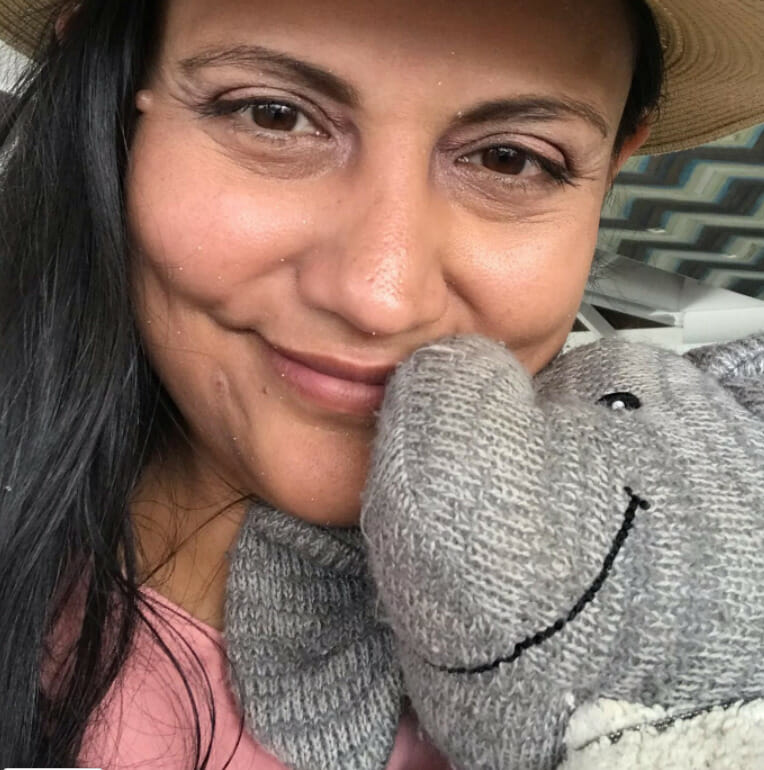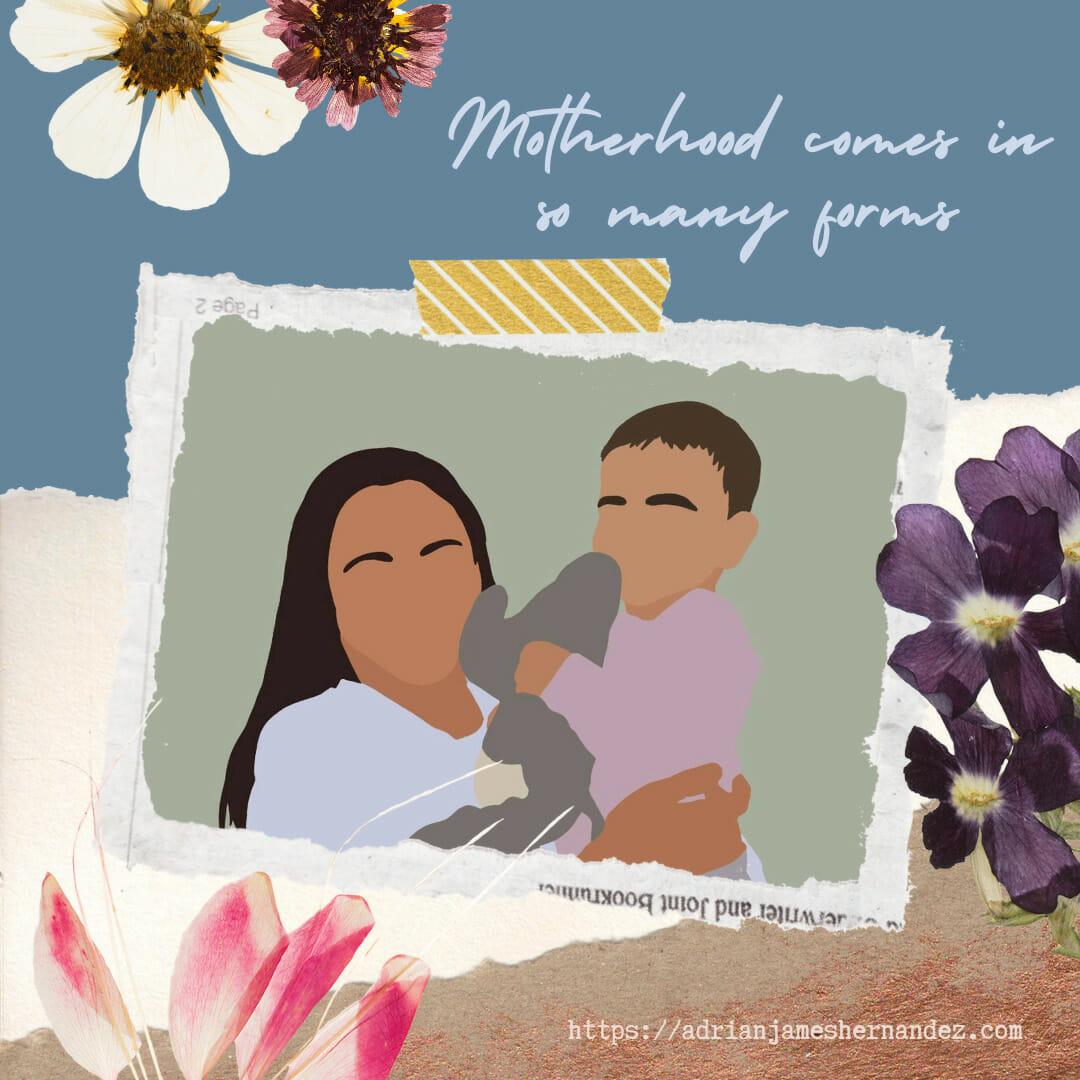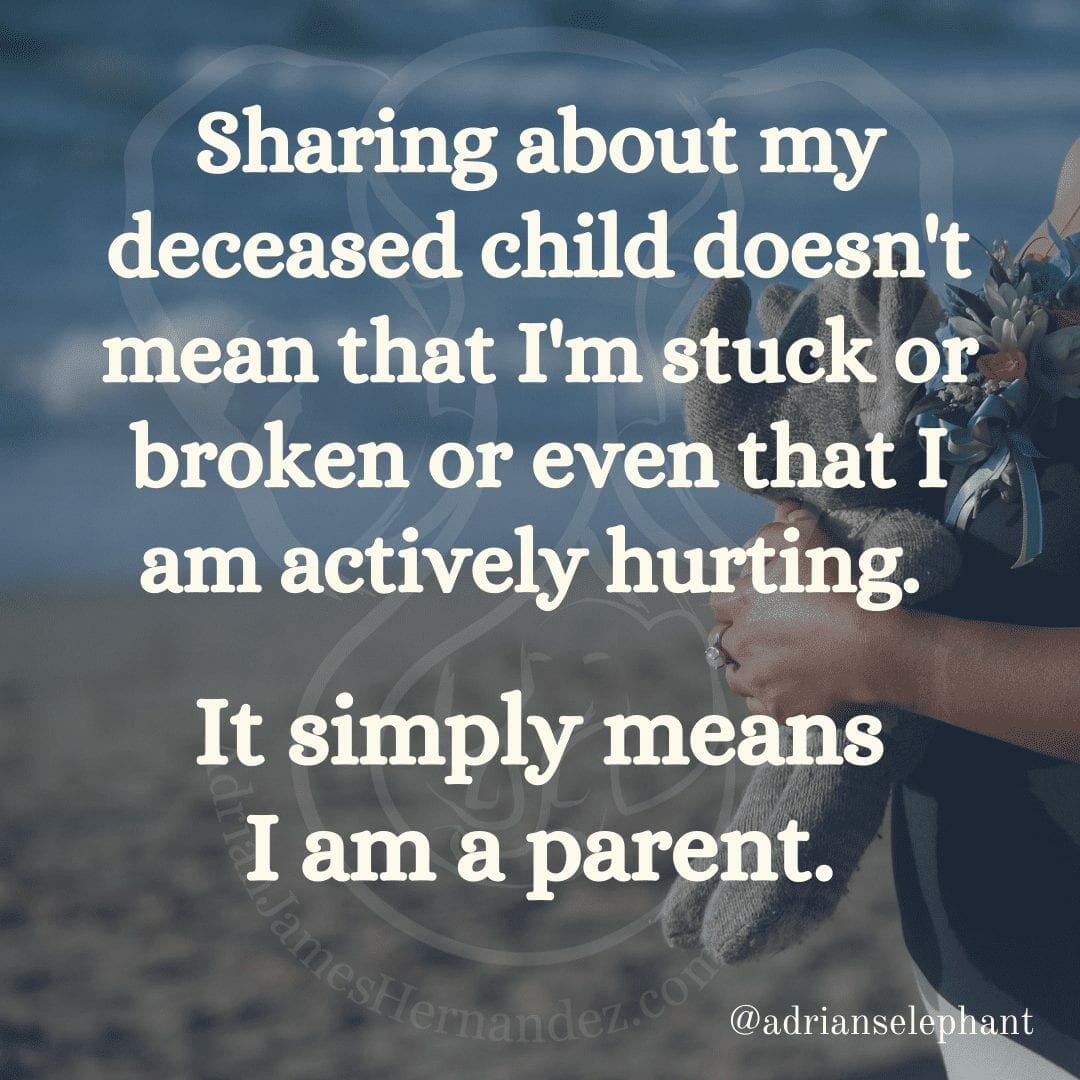When I was in the hospital, one of the things every provider made a point of saying to me was that Adrian’s death was not my fault. It’s something I think providers are conditioned to say, without thinking about it. And I hated it.
The fact is, Adrian’s death is my fault. At least partially. I made some decisions that directly impacted his death, and I’ve made my peace with that. Fault doesn’t automatically equal guilt. And I constantly wish people would stop telling me something I know to be false.
But let’s talk about this statement in general. Let’s assume a parent feels like their child’s death is their fault, and you maybe think it isn’t. Is it okay in this situation to tell them “It’s not your fault”? The answer is still no.
Let’s try thought experiment: Don’t think of an elephant.
What are you thinking of right now? Of course, an elephant. Why? Because thoughts don’t work that way. I told you not to think of an elephant, but what you heard brought up the image of that animal. And for the small fraction of you who were already thinking of an elephant, my suggestion only made it worse. Because you can’t tell someone to not think of something they’re already thinking, especially not when it’s overwhelming, and not when it’s ingrained. The simple words alone aren’t enough to make it go.
This is what it’s like when you tell a bereaved parent that the death of their child is not their fault. No matter what, true or false, these words alone won’t make the feelings go away. Ironically, these words may actually magnify the feelings, or make the parents feel as if their feelings are wrong. It adds a layer of additional pain on top of what is already hard to bear.
If you truly want to support someone in pain, the best response is always simply to listen. And if you listen long enough, maybe they will bring up the issue with you. But until they do, it’s not your place to have an opinion.








































































































































































